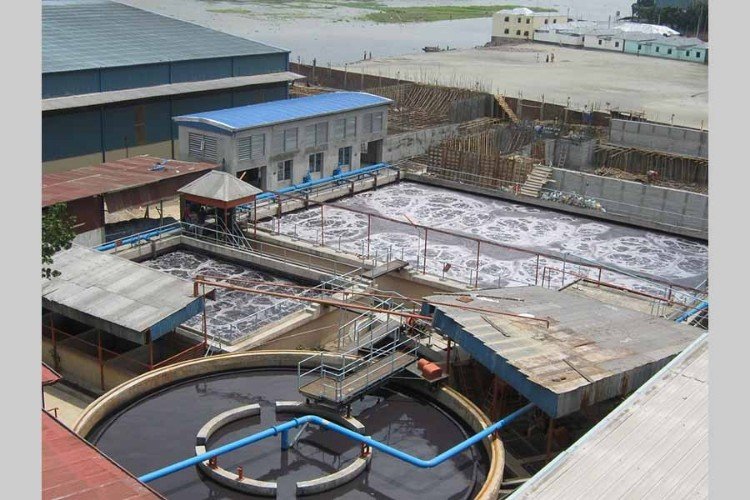Water recycling to ease its crisis
Published: 19 April 2025, 2:21:00

Tanim Asjad : As summer starts, different parts of the country are likely to face severe water crises in the coming days, as a piece of news warns. It is said that in Feni District, water is unavailable from 167,000 tube wells due to the depletion of underground water. Around 70 per cent of tube wells have stopped yielding water at some upazilas in the district. So, residents are forced to fetch water from distant sources or consume unsafe water from ponds and ditches, causing serious health hazards. As there is no water in tube wells, ponds, canals, beels or swamps, people are eagerly waiting for rains.
The situation in Feni is not exceptional, as many areas of the country are already in similar crises. Millions of people are struggling to fetch the necessary fresh water for drinking and cooking. Even in some areas, adequate water for washing is not available. This means that people are unable to maintain basic hygiene, leading to increased health risks. Every day, they have to take a long walk to collect water from different sources, and not all of it is clean. So, millions of people have been suffering, not just from the lack of water, but also from the health issues that arise from using contaminated water.
Over the years, groundwater depletion has become a serious concern in the country. This means that the water stored underground, which is crucial for our survival, is being used up faster than it can be replenished. The main reason for this is the excessive extraction of groundwater for agricultural production. As irrigation in Bangladesh is still inefficient, it leads to misuse of water, adding pressure on both ground and surface water, posing a serious threat to ecology. Bangladesh’s three main rice growing seasons are December-January to April for Boro, April/May to June-July for Aush, and July-August to November-December for Amon. As the cultivation of Boro has already been completed and the harvesting time is near, the water demand is low now. Nevertheless, the cultivation occurs during the dry winter season, and farmers have to extract significant amounts of groundwater using shallow and submersible pumps. The extraction caused groundwater depletion, and the lack of rain since November has made it difficult to recharge the ground level.
Water extractions by dyeing machines at textile factories also deplete the water table in industrial zones like Narayanganj and Gazipur throughout the year. The persistent extraction leads to a water crisis in urban areas, which intensifies in summer.
Rapid but unplanned urbanisation also increased the problem as unregulated extraction coupled with misuse of water becomes a regular phenomenon. Many households in Dhaka and other cities in the country are used to wasting water instead of preserving and recycling it. Misuse of water is also visible in many educational institutions, commercial centres, and masques, although there is an opportunity to recycle some of the water used there. For instance, installing a recycling system in mosques makes it possible to clean and reuse the water used for ablution. Similarly, recycling mechanisms can be introduced in various educational institutions and offices. Investing in a well-designed recycling system will be beneficial in the long run, although installation and operation costs are initially high.
The depletion of groundwater is a global crisis now. An international study found that rapid groundwater-level depletions are widespread in the 21st century, especially in dry regions with extensive croplands. Moreover, groundwater-level declines have accelerated over the past four decades in 30 per cent of the world’s regional aquifers. Nevertheless, there is still a lack of cooperation among the nations to work together to address the crisis. Some countries are even yet to recognise the severity of the situation. This is where policymakers and community leaders play a critical role. They can implement and enforce water conservation measures, educate the public about the importance of such conservation, and invest in water recycling technologies. One of the key tools to fight against the crisis is efficient recycling of used water.
asjadulk@gmail.com




